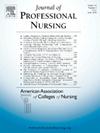An innovative Doctor of Nursing Practice scholarly project curriculum model: Strategies for supporting learners at various entry levels
Abstract
The Doctor of Nursing Practice (DNP) Program curriculum must address the challenge of developing Competency Based Education (CBE) curriculum for DNP Scholarly Projects tailored to meet variations in nursing learner preparation and practice, from novice bachelor's entry level and master's advanced nurse practice expert entry level pathways. The recent Future of Nursing 2020–2030: Charting a Path to Achieve Health Equity report by the National Academy of Medicine advocates that competency-based education (CBE) approaches in nursing schools should focus upon the advanced practice nursing population within collaborative academic practice partnerships. This article describes an innovative DNP Scholarly Project Curriculum model at an academic health science center that integrates academic partnerships and CBE strategies that have been developed for second degree Bachelor's direct entry to nursing (direct entry), post BS in nursing to DNP (BS to DNP), Post Master's to DNP (PM DNP) entry levels of preparation. The DNP Scholarly Project Curriculum utilizes an innovative, scaffolded approach to fostering CBE for the assessment of learning activities at the doctoral level. The DNP Scholarly Project Curriculum includes domains of quality improvement, critical appraisal of the literature, evidence-based practice models, implementation practice models, policy analysis, and process/outcome evaluations. Preliminary alumni and stakeholder feedback suggests that these projects are not only impacting practice but improving learner competency in quality improvement science. Implementation of this model has led to enhanced CBE-driven curriculum teaching and learning strategies, and sustainable collaborative academic partnerships.

 求助内容:
求助内容: 应助结果提醒方式:
应助结果提醒方式:


